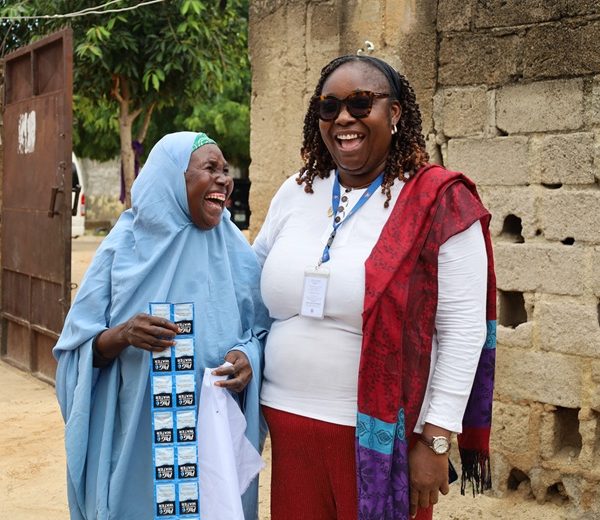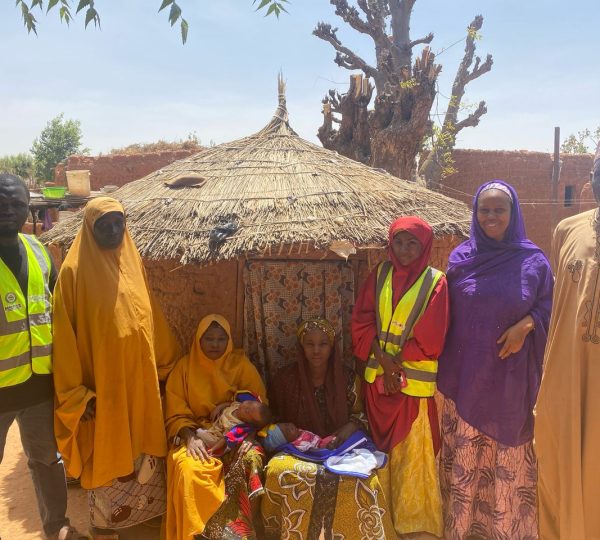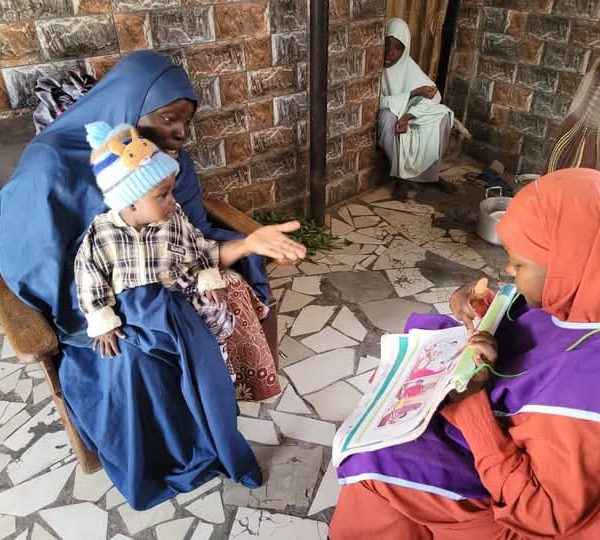Numbers that Tell a Tale: Tracking Progress of IPCAs in Health and Hygiene Advocacy – W4HL Project
By Shaibu John, Iyobosa Osifo, Onyinye Ojeh, Blessing Okoh Uduma, Jane Adizue, Elizabeth Idoko
 In the pursuit of sustainable community development, the power of collaboration, engagement, and empowerment cannot be understated. This principle forms the very core of the Water for Healthy Living (W4HL) Project—a dynamic initiative that envisions a sustainable access to safe water system and positive Water, Sanitation & Hygiene (WASH) behaviour amongst family social structures through improved hygiene practices and accessible health information. In partnership with SPHCDA Nasarawa and the WASHCOM division of Edo State, W4HL embarked on a journey that brought about impactful change through the identification, selection, and training of Interpersonal Communication Agents (IPCAs) deployed in Esan West LGA of Edo state and Karu LGA of Nasarawa State, Nigeria.
In the pursuit of sustainable community development, the power of collaboration, engagement, and empowerment cannot be understated. This principle forms the very core of the Water for Healthy Living (W4HL) Project—a dynamic initiative that envisions a sustainable access to safe water system and positive Water, Sanitation & Hygiene (WASH) behaviour amongst family social structures through improved hygiene practices and accessible health information. In partnership with SPHCDA Nasarawa and the WASHCOM division of Edo State, W4HL embarked on a journey that brought about impactful change through the identification, selection, and training of Interpersonal Communication Agents (IPCAs) deployed in Esan West LGA of Edo state and Karu LGA of Nasarawa State, Nigeria.
The heart of the project lies in its focus on the indigenes of the implementing communities. Recognising that involving, collaborating with, and empowering the community and local structures were pivotal for sustainable success, to the project W4HL, in collaboration with its partners, handpicked qualified and experienced WASHCOM members and health educators from within the implementing communities. The result was a dedicated team of Twenty-Four (24) IPCAs who became the driving force behind its activities.
 These IPCAs weren’t just selected; they were nurtured into effective agents of change. Their comprehensive training spanned seven modules that delved deep into water, sanitation, hygiene, and more. Beyond imparting accurate information, the training focused on refining their communication skills, enabling them to seamlessly integrate health promotion into the daily routines of household members. This holistic approach was designed to ensure that the information they shared was not only correct but also easily assimilated.
These IPCAs weren’t just selected; they were nurtured into effective agents of change. Their comprehensive training spanned seven modules that delved deep into water, sanitation, hygiene, and more. Beyond imparting accurate information, the training focused on refining their communication skills, enabling them to seamlessly integrate health promotion into the daily routines of household members. This holistic approach was designed to ensure that the information they shared was not only correct but also easily assimilated.
The W4HL project’s Social and Behavior Change Communication (SBCC) strategy was a masterstroke in community engagement. Comprising three key approaches—household visits, compound meetings/community dialogues, and outreaches—the strategy ensured that IPCAs reached every corner of the community. Their discussions, demonstrations, and the distribution of P&G water purifiers during household visits were designed to resonate deeply with community members. This personalised touch not only educated but also empowered individuals to make positive changes in their hygiene practices.
The impact of the IPCAs’ efforts is nothing short of inspiring. In the first quarter of the project’s second phase, their achievements stand tall; total number of females reached (H-H): 392 and Males (H-H): 168. Female attendees (group/outreach): 190 and Male; 86. About 290 Households with 560 persons were reached. 10 sensitisation sessions were also conducted. Lastly, 9,120 P&G water purifiers were also successfully distributed. These numbers represent more than statistics; they are evidence of the positive change taking root within communities.
In recognizing the challenge of reaching remote community members, the project’s outreaches have been pivotal. These efforts bridge the gap for those who, due to their daily commitments, cannot be reached through traditional means. By extending their reach through these innovative methods, the IPCAs are ensuring that no community member is left behind.
The journey of the IPCAs, the project partners, and the community members has been a remarkable one. Their dedication, enthusiasm, and commitment have created ripples of transformation within communities. The vision of a healthier, cleaner, and more vibrant future is becoming a reality with every interaction, every discussion, and every purifier distributed.




